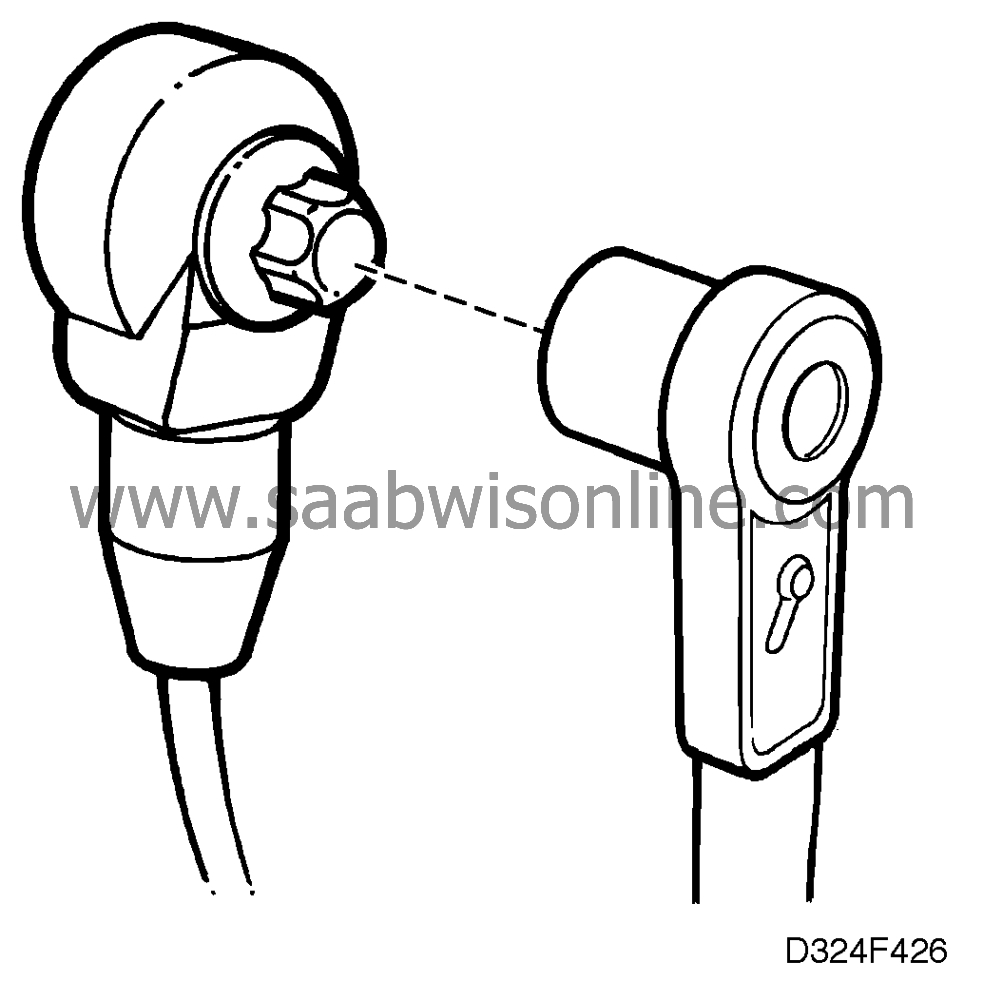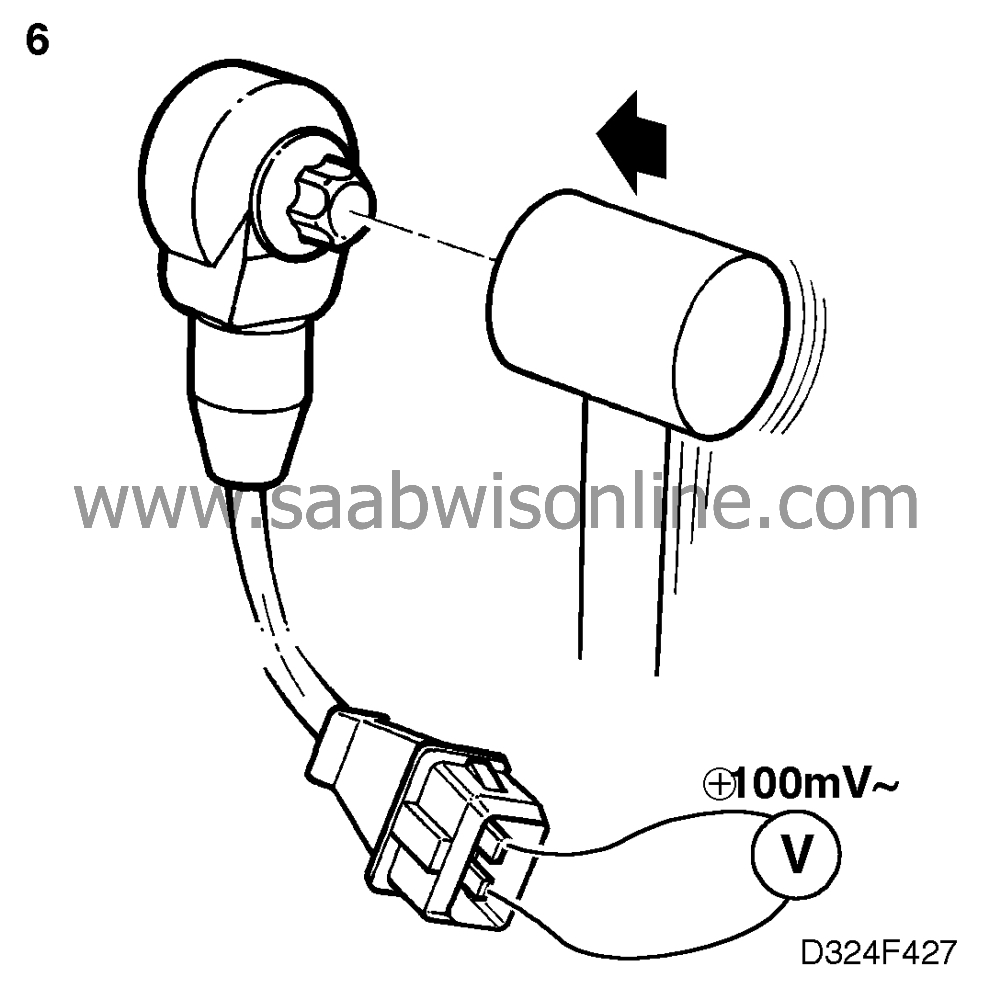P0331
Symptom: Engine performance may be down
Knock sensor for cylinders 2-4-6: no input to control module/no
continuity or short circuit

Fault symptom
Engine performance may be down
Condition
The input from the knock sensor is active or absent for more than
four seconds at engine speeds above 1800 rpm.
|
1.
|
Use the ISAT command
"KNOCK CONTR ACTIVE" in the "READ
ON/OFF" menu or the "KNOCK CONTROL" command in the "READ
FUNCTIONS" menu while driving the car with the engine labouring
heavily.
The ISAT should then show how many degrees the control module retards
the ignition when knocking occurs. If ignition retardation takes place,
proceed to point 7.
If no retardation of the ignition is shown in spite of the engine being
made to work hard, continue with the next point.
|
|
2.
|
Check that the knock sensor connector makes good contact.
|
|
3.
|
With the ignition switched off, connect a BOB between the MOTRONIC
control module and the wiring.


Start the engine and check the knock sensor's signal
voltage by taking a reading across 29 and 30 on the BOB. When the
engine is revved up, the voltage should be higher than 20 mV∼.
If the voltage is OK, proceed to point 5. If it is not,
continue with point 4.
|
|
4.
|
Check the screened lead between the knock sensor and pin 29 of the
control module for continuity/shorting.
|
|
5.
|
Check that the knock sensor is tightened to a torque of 22 Nm (16 lbf
ft).

|
|
6.
|
Then check the knock sensor signal by measuring the voltage
directly
on the sensor while lightly tapping the knock
sensor retaining screw. The voltage should then go up to at least 100
mV∼.

If no voltage is obtained (the knock sensor appears to be completely "dead"), change
the sensor.
|
|
7.
|
Clear all trouble codes and drive the car on the road to check whether
any codes are generated afresh. If they are, turn to
 for
further diagnostic instructions.
for
further diagnostic instructions.
|

 for
further diagnostic instructions.
for
further diagnostic instructions.






